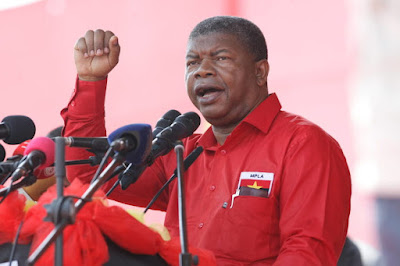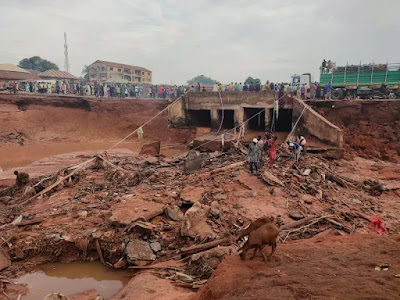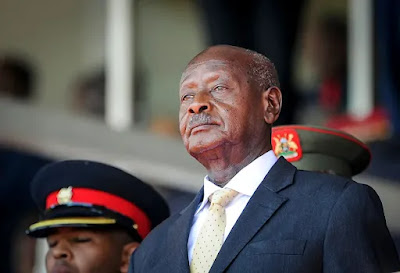ISIS, CIA and the GHF: Israel’s New Frontier of Control Through Hunger
May 30, 2025
Gaza aid center was overrun by starving crowds. (Photo: video grab)
By Robert Inlakesh
Again, this plan will likely fail. But the mere fact that there is an active effort to launch this initiative represents a whole new level of depravity.
The Israeli-backed Gaza aid distribution plan, now being implemented in the besieged coastal territory, is a sinister plot. It not only privatizes humanitarian assistance during a genocide, but the more that emerges about the shady Gaza Humanitarian Foundation, the more horrifying its prospects appear.
What has been revealed as the brainchild of the Israeli military, which began developing following October 7, 2023, the Gaza Humanitarian Foundation (GHF) is a recipe for utter disaster.
The Israeli newspaper Haaretz revealed that Israeli Prime Minister Benjamin Netanyahu’s office chose the private company, while a US official speaking to France 24 labelled the whole project “very much an Israeli idea”.
Not only has every major humanitarian organization, in addition to the United Nations’ various organs and experts, either refused to work with or openly condemned it, its Executive Director Jake Wood resigned from the project only a day before it began operating.
Wood, who is a former US Marine sniper and entrepreneur, explained his decision to jump ship at the last moment in an official statement:
“It is clear that it is not possible to implement this plan while also strictly adhering to the humanitarian principles of humanity, neutrality, impartiality, and independence, which I will not abandon.”
Reading in between the lines here, it is very likely that Wood began to detect signs of the inevitable catastrophe that would befall his career if he was going to continue down the path he was headed. In addition to the blood that would be on his hands.
The Gaza Humanitarian Foundation was first registered in Switzerland in February, by David Papazian, formerly with the Armenian National Interests Fund; Samuel Marcel Henderson; and David Kohler. None of them have experience in the humanitarian aid field.
Then the GHF was registered again in Delaware, by American lawyer, James Cundiff, who also registered the private military firm called Safe Reach Solutions. This military contractor firm is run by a former CIA paramilitary chief, Philip P. Reilly, who also has a past of working with Constellis; the rebranded version of Blackwater.
It was also reported that unnamed firms linked to the Gaza Humanitarian Foundation have direct ties to Israeli Strategic Affairs Minister Ron Dermer. Even worse for the project’s PR is the fact that Israeli Knesset member, Avigdor Lieberman, claimed that the dark money funding the GHF was coming from the Israeli government.
“The money for the humanitarian aid is coming from the Mossad and the Defense Ministry”, Lieberman asserted. While noting that he did not have conclusive proof, the Israeli opposition official claimed: “You have a foundation that appeared out of nowhere, and a company operating without a background or experience…It seems obvious”.
“Even if they’re US-registered, the entity that initiated and pushed for the operation is Israel or parties acting on its behalf”, Lieberman said. He also qualified his assertions by stating that “It’s being done in a blatant and clumsy way,” which Haaretz claims would cost a minimum of 140 million USD per month to finance.
The idea here is not only to establish a number of aid distribution points that will be managed by private military contractors, but to force the population of Gaza – through the weaponization of hunger – to relocate towards militarized concentration camps.
When they arrive at the distribution points, as we have repeatedly witnessed, they are herded like cattle and threatened by ex-American soldiers who carry automatic weapons and hand grenades.
Keeping all of this information in mind, former private military contractor (PMC) for the infamous firm Blackwater, Morgan Lerette, told the Quincy Institute for Responsible Statecraft that “Aside from the danger, putting armed US civilians in an active battlefield to feed locals, is reminiscent of Somalia in 1993. We can only hope it doesn’t end in a similar fashion”.
Lerette was referencing the infamous ‘Black Hawk Down’ incident, which led to the mass slaughter of innocent civilians.
I would also personally posit that the situation we are seeing develop, assuming this continues along its current trajectory, will unleash another Nisour Square massacre situation.
The Nisour Square incident is one of the most notorious civilian slaughters carried out at the hands of Blackwater PMC’s, which came to represent the catastrophic failure of the US Iraq invasion and subsequent “nation building” project.
Back to Jake Wood, it is likely that he saw what was coming, given the evident logistical nightmare afoot and decided to save himself before everything started. As we saw on day one of the aid distribution in Rafah, starving civilians in Gaza began rushing towards the aid supplies, causing American military contractors to run in fear as Israeli forces opened fire on the crowds.
It is perfectly obvious that more serious horrors are lurking in the near distant future and that when a major incident occurs, the GHF will end up being the scapegoat. Blackwater, for all its horrors, was the convenient outlet for the US military to share the blame for their war crimes in Iraq to a private company.
This ended up taking its CEO Erik Prince, from the star-child right hand man of the US army and CIA, to a man that is still desperately trying to claw his way back to prominence with a highly tainted past, often driving away potential business partners. At least this was the predicament of Prince until the Trump administration returned to power.
Ethnic Cleansing and Israel’s ISIS-linked Militias
If you thought things couldn’t get worse, the plot again thickens. Israel is now backing ISIS-linked criminals, drug lords and murderers, who they have been working alongside in the southern Gaza “buffer-zone” after their invasion of the area on May 6, 2024.
These gangsters, many of whom had escaped from Hamas-run prisons after Israel bombed the entrances to Gaza’s jails, banded together in groups of hundreds and began looting aid. Led by ISIS-linked warlords like Yasser Abu Shabab and Shadi al-Sufi, hundreds of armed criminals – who formerly belonged to groups like ISIS and Al-Qaeda, and/or were jailed for narcotics smuggling, murder and theft – exploited the suffering population of gaza.
These fanatical gangsters have worked in the “buffer zone” that is considered a “kill zone”, where no civilian can enter without being murdered by Israeli strikes and even aid/medical workers have been killed there. Their job is simple, under the watchful eye of Israeli drones, they demand a fee be paid by any aid organization transferring humanitarian goods into Gaza.
Even when humanitarian organizations have paid these fees, these gangsters still launch armed ambushes on aid convoys, hoarding goods and even taking aid workers hostage. Storing the aid in warehouses, positioned in some cases only hundreds of meters away from Israeli forces, they slowly drip feed the aid to sellers on the black-market.
This practice continued up until the Gaza ceasefire was declared on January 19. Even during the ceasefire, the gangs made trouble, but when Israel decided to violate the agreement with Hamas and return to bombarding the besieged territory and deprived it of all aid for 80 days, they began working again.
This prompted Hamas to form the Arrow Force, consisting of Gaza’s remaining police and security services, who were tasked with cracking down on black-market trade, violent crimes, assaults on security personnel and looting by these criminal elements.
Suddenly, as aid began entering Gaza in very small portions, these gangsters emerged again, but this time they were wearing brand new tactical vests, Palestinian flag patches and had badges reading “Anti-Terror Services”.
According to various sources, in addition to Israel’s own proposals from last year, these gangsters are being prepared as an opposition force that is being used to create “Hamas free zones”. They are even said to be preparing to work with the American private military contractors who lead the Gaza Humanitarian Foundation.
They have now undergone a makeover and claim to be victims of Hamas, alleging that they are the ones who are securing the aid. This fits into Israeli propaganda that blames Hamas for the looting. However, the UN, in addition to all the rights groups and humanitarian agencies who have commented on the issue, state that there are no recorded cases of Hamas looting and instead it is the gangs.
Inside Gaza, there is also a problem with collaborators who are helping to push an anti-Hamas narrative to the benefit of the gangs – which have clear links to ISIS in the Sinai – which occurred recently when civilians stormed a World Food Program warehouse. One man in the video made a statement against Hamas, making it seem like the Palestinian group was hoarding aid and the warehouse being stormed belonged to them. This was then shared on Israeli government pages across social media, as “proof” that Hamas is looting aid.
Evidently, the warehouse in Deir al-Balah had nothing to do with Hamas, but the Israelis are attempting to latch on to anything in order to push their narrative.
While most Palestinians in Gaza are aware of the gangsters and their agendas, they are now being heavily backed by Israel to carry out specific tasks. In addition to this, Israel is constantly bombing Palestinian security forces and police officers who are trying to tackle the gang problem, while also pushing anti-Hamas propaganda and even offering financial rewards to desperate civilians who are willing to help them.
The evidence is all there and the conclusion is obvious. Israel is trying to replace the Palestinian security apparatus that is under the current rule of Hamas, with an ISIS-linked movement of gangsters who they have given a makeover to and are presenting them as a legitimate opposition force. In other words, it is a civil war strategy.
If the Gaza Humanitarian Foundation plot succeeds at taking over all aid distribution, it would force the civilian population into concentrated areas where the US military contractors and gangsters, alongside the Israeli army, would maintain de facto control of their lives. Although this is unlikely to work the way they are planning, this is a clear agenda that is being hatched and all the evidence points towards this being the case.
Just to be clear, Hamas has spent nearly two decades fighting against Al-Qaeda linked groups, and ISIS, when it hatched its Gaza wing in 2015. Israel is empowering these individuals, along with common criminals. A strategy of forcing these gangsters upon the people of Gaza through the weaponization of mass starvation.
If all of the indications noted in this article end up leading to their natural conclusions, then it is safe to say that this GHF plot is one of the most sinister agendas in modern history. Unfortunately, almost none of these crucial issues have been addressed and there is no transparency with what is unfolding under the new Gaza aid distribution scheme. There is also an evident desire from at least a segment of the Israeli leadership that seeks to use this plot as a means to ethnically cleanse the Gaza Strip.
Again, this plan will likely fail. But the mere fact that there is an active effort to launch this initiative represents a whole new level of depravity. The worst part, this is all privatized, meaning that people are profiting off of the ongoing genocide.
(The Palestine Chronicle)


















